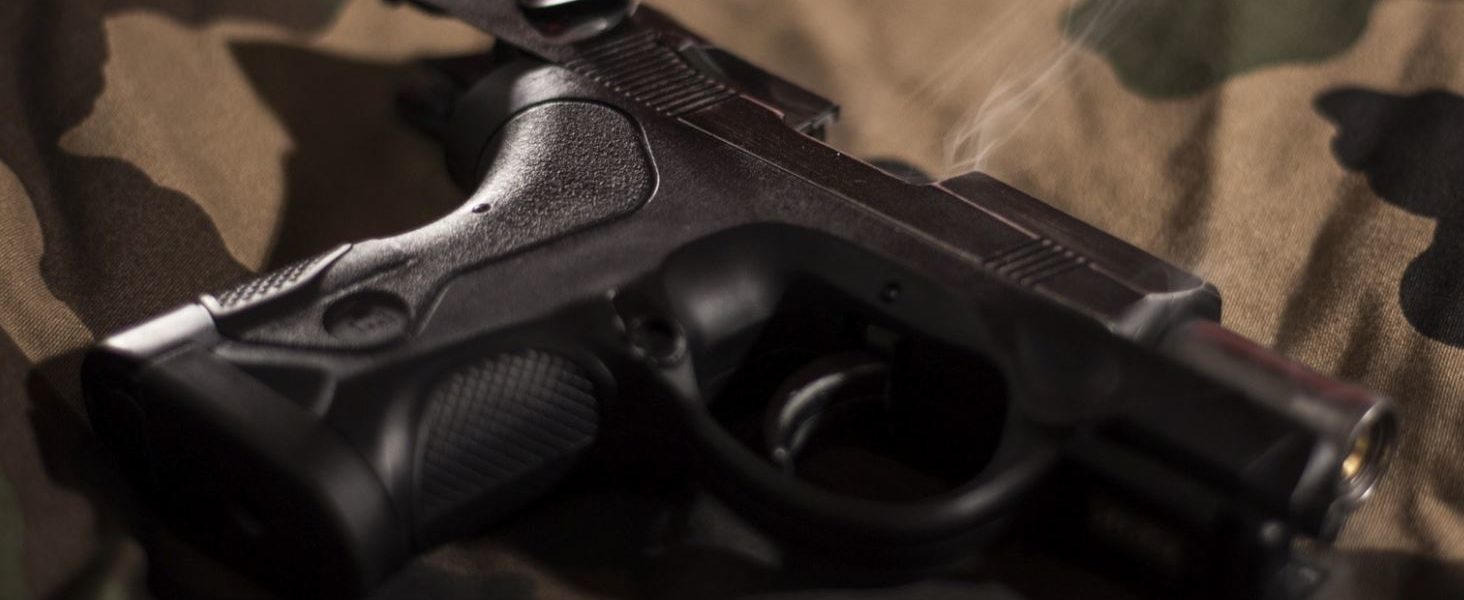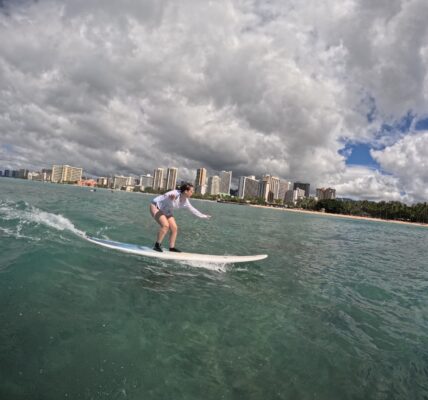By Seth Klamann
Casper Star-Tribune
Via Wyoming News Exchange
CASPER — Lander-based Fremont County School District No. 1 became just the fourth district in Wyoming to allow approved staff members to carry firearms in schools after a school board vote earlier this week, despite objections from some in the community who criticized the policy as hastily written and the board of ignoring “overwhelming” opposition.
“Where I really take issue with it, recognizing that the board seems intent on arming teachers regardless of what public really wants, my issue is this is just incredibly sloppy policy making,” said Stefani Farris, a parent of a fifth-grader in Lander. “I think that the policy itself is deeply flawed.”
“I’m confident in implementing this policy that it will in fact make our students and staff safer while in the district,” said board chairman Brett Berg, who added that there was more support for the policy than what was apparent at board meetings.
The six-person board voted 4-2 on Tuesday to approve the policy, which has several sub-policies that govern the application process, the type of holsters and handguns recommended, the training requirements and the drug testing involved. The plan allows staff within the district to apply to carry weapons either on their person or to store them in a lockbox. Among other requirements, staff must have a concealed carry permit, must undergo a psychological exam and must complete at least 56 hours of training.
The policy states that staff approved to carry firearms “shall only reveal his or her firearm if he or she reasonably perceives that his or her life, or the life or lives of others, are in imminent risk of death or serious bodily injury from another person’s use of a weapon.” It also states that once a staff member at a certain school is approved to carry a firearm, the parents at that school will be notified, though the employee’s name will not be released.
The Legislature passed a law in 2017 allowing districts to decide whether to arm staff.
The board began considering the policy several months after the law allowing it came into effect, Berg and Superintendent David Barker said. The district launched two surveys — one just for staff and one for the entire community — to gauge interest. The polls, which Barker said were not scientific, showed support for the policy: More than 50 percent of staff surveyed said they supported it, while about 15 percent said they were uncertain. Of the community members who responded to the second survey, 53 percent said they were in favor of it, while 37 percent opposed it and another 10 percent were unsure.
The board held a few more meetings in spring 2018, Berg said, and took up the topic again last fall. In February, the board instructed Barker to begin drafting a policy. Barker and Berg said there was no incident or factor that prompted the board to examine it. Berg said the Legislature allowing the board to do it prompted members to discuss it, and there was enough interest among the board to move forward.
The board’s vice chairman, Joe Palladino, did not return an email or voicemail seeking comment Friday. Treasurer Kathy Hitt and clerk Teresa Nirider also did not answer emails sent early Friday afternoon.
Barker said public comment, from the time the board first discussed it again earlier this year throughout the approval process earlier this week, was largely opposed to the policy. He said during the 45-day public review period, the district received about 300 comments, and the “large majority” of those were against it.
Berg, who voted in favor of the policy, agreed, though he said that didn’t include “the people who call my home and talk to me about it, the people who come by and that I see uptown talking about it.”
“I made no bones about how I stood on this particular subject through the last election cycle, and I still got re-elected,” he said.
When the policy was drafted and first presented to the board in May, it took three meetings and 14 hours to get through it, a teacher and a board member who spoke to the Star-Tribune said. Those present were largely opposed to it. A summary of public comment, distributed to board members by Barker and provided to the Star-Tribune, shows there were 217 comments made against the policy between June 5 and July 23, when the board voted to approve it. Over the same time period, there were 61 comments in support, and eight comments expressing uncertainty.
The board member, Michelle Escudero, said she was opposed to having guns in the classroom and that the policy would’ve been better presented as part of a broader school security plan.
“It’s not in context of a bigger, more comprehensive school safety and security plan,” she said. “It’s as if we went to a tool before figuring out what is it we’re trying to achieve here. What are the goals and what’s the best way to achieve those goals?”
Farris, the parent, echoed that sentiment.
“Fundamentally I would say that I think it’s a bad idea to have civilians carry loaded weapons in our kids’ classrooms,” she said, adding that she and her husband owned firearms and that they weren’t opposed to the weapons generally. “But recognizing that there are lots of people who feel that’s fine and who truly think that this will keep our kids safe, that kind of policy should come after every other possible safety measure has been thought of and exhausted. … This to me very much feels like a last step in a much longer school safety process.”
Vanessa Hitchcock, a teacher in the district, said she too was opposed to the policy. She said teachers didn’t have “any discussions beyond what’s been offered to the community,” meaning the public hearings and surveys.
Still, she added, many teachers and staff supported the idea initially, and the board seemed determined to move forward on it.
Berg said he didn’t know how he felt about the policy when the board first discussed it in 2017. But after discussing it with two veteran law enforcement officials, who he said told him that arming trained and willing staff would make students and staff safer, he decided to support it.
Hitchcock, Farris and Escudero all said they thought there were issues with the policy, even as it was passed. Farris said the plan seemed to be hastily drafted.
Barker said the board put “a lot of work” into the policy. He said the district worked with law enforcement and took that input into account and that the board met several times to draft it. (A message left for Lander Police Chief Thomas Shroyer was not returned Friday.)
Berg repeated that he was confident in the policy that was passed.
“We spent probably 50 board hours in dealing with this policy,” he said, “and I can’t think of another policy that we have on the books that we have even close to 50 board hours. I myself have nearly 100 hours in working on this policy.”
Still, the board made changes at its meeting Tuesday. Most notably, critics said, it changed language that provided legal protection for staff who use their approved weapons. Previously, those who spoke to the Star-Tribune said, the policy provided no support or indemnification for teachers. Now, the policy offers that protection to those within the scope of their duties.
But those changes, even if they attempted to fix concerns brought by those who opposed the policy, brought a new wave of opposition. Farris and Hitchcock said the board should’ve opened another 45-day public comment period.
Barker said the changes weren’t “major” and that he didn’t think they required public comment be opened again. The district’s private attorney wasn’t present at the meeting, but Berg said they called the lawyer who told them the changes didn’t require another review period.
Despite the ongoing criticism, Barker said the policy has been passed and the district will busy itself implementing it. Because there’s significant work needed before the board can begin approving staff, he said there’s a chance there won’t be approved firearms in Lander schools until the 2020-21 academic year.
From the critics’ standpoint, it’s unclear if there’s a path forward. Farris said this wasn’t about “sour grapes” about a lost vote but about “the responsibility of our school board members to take their jobs seriously and to get this policy to be as airtight and well-crafted as possible.”
Escudero, the board member who opposed the proposal, said she still feels there’s unanswered holes in the policy.
“We have two particular things that I think are unclear. One is, what are we asking our teachers to do? What is their directive?” she said. “The second one is, we don’t have any clear understanding of how we’re going to handle misuse of gun incidents, mishandling of weapon incidents.”
She added that the board needed to be “very careful” in how it proceeds forward in terms of incorporating and overseeing the policy. She ticked off running new drills with law enforcement and teachers and informing students and parents as looming challenges. Plus, Escudero continued, the district will likely have to add this new dimension to its ALICE training — an active shooter drill that Natrona County School District also uses.
But it’s unclear if that’s even possible. ALICE training involves four active shooter scenarios. The last one is designed to show the perils and false security that can come from arming staff. How, then, can you incorporate a teacher with a gun into that training?
Escudero said she wasn’t sure.
“I don’t see how the two mesh,” she said. “But they need to mesh. There it is. The’re going to need to mesh.”
Hitchcock, the teacher, said teachers and staff will have to study the policy to ensure they truly understand it.
Beyond that, she said, the district will have to get to work healing itself after the divide this debate has opened up.
“The other night, on Tuesday, it was really, really sad to me to just kind of sit back and watch how our school board has allowed this policy to create a fracture in our wonderful community,” she said. “It’s really heartbreaking to see that. We have a choice on how we move forward. We can remain divided and upset and bitter … or we can heal this.”






